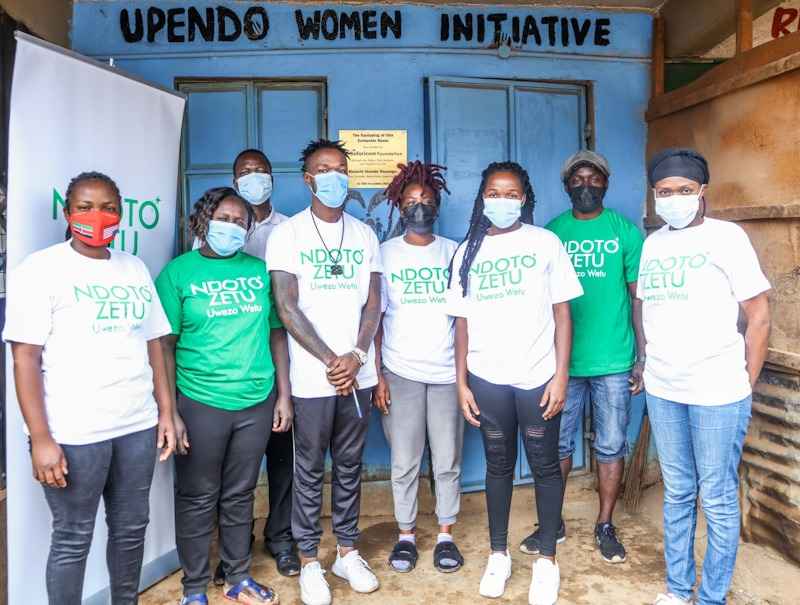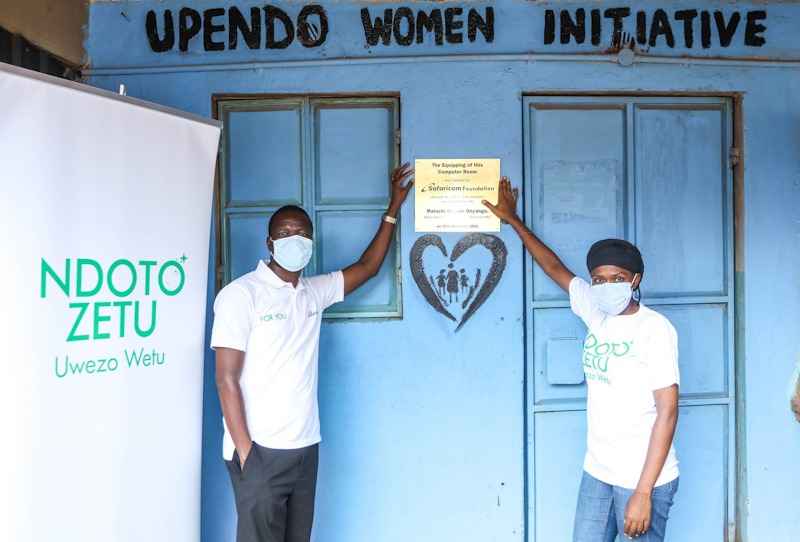Christine Ogira’s happier times began when she and other women started a computer business in 2019 in Kawangware, on the outskirts of Nairobi.
Intrigued by the lack of basic computer skills among young girls and women in the area, they aspired to increase their participation in the technology sector.
“We wanted to create an environment that teaches young girls and women about the opportunities in a technology career.”
“Teach them the relevant skills needed to get the high-paying tech jobs, showcase role models, and connect them to the technology sector,” Christine added.
Upendo Women’s Initiative has developed a thriving savings plan that has brought a measure of financial independence and stability to the members’ lives.
“During the initial stages of the group, we faced various challenges. We knew we wanted to do something for the community but needed to figure out how or where to get the funds to start doing it.”
The group didn’t even have an income-generating activity. So, when we saw a computer literacy gap among young girls and women in the area, a computer business idea immediately emerged. We saw it as a great investment opportunity and a tool for empowering girls and women in the area.” Christine said.
Christine and the rest of the members did give up on the brilliant idea. So they started doing it little by little with the hope that, with time, they would have enough savings to add more and better equipment for the growth of their computer business.
In the process of trying to make a difference, the women’s Initiative efforts were eventually noticed! In October 2021, the group received ten computers and a printer from the Safaricom Foundation.
The Upendo Women Initiative in Kawangware, Nairobi County, has recently benefitted from a donation of computers, a projector, and a printer through the #NdotoZetuUwezoWetu initiative. We continue to #TransformLives by implementing economic empowerment programs across the country. pic.twitter.com/MrT8aJs4TW
— Safaricom Foundation (@SafaricomFDN) December 14, 2021
According to Christine, the support from the foundation couldn’t have come at a better time and has made the project very sustainable.
With the help of two employees, the group has set up shop at Kawangware, where they provide basic computer package classes to members and non-members.
“We currently charge an average of 3000 shillings for non-members taking basic computer packages and only 1,500 for members taking the same packages.”
Unlike in the initial stages, the grant has enabled the group to continue its business with ease. Moreover, the group members are no longer worried about funds that go into the savings net.
“We can boldly say that the grant we received has helped us make a positive impact. It has improved the lives of group members and the community of Kawangware slums.
“This is just the beginning of the good things we want to bring to the Kawangware slums. We will soon expand our business, providing more employment and learning opportunities.”
“Everyone deserves a chance to learn, and we are here to ensure this happens smoothly,” Christine said with an affirmation.”
Most importantly, Christine says the group’s mission is to provide a safe space in Kawangware slums for girls and young women to envision and pursue the future they want for themselves and their commonalities.
According to the United Nations Human Settlements Programme (UN-HABITAT), 75% of Nairobi’s urban population growth is absorbed by informal settlements.
Consequently, women continue to be the most severely affected by poverty, violence, and systematic exclusion.
Beyond facing health, education, nutrition, and labour discrimination, women are burdened with family and household management.
Social and economic vulnerabilities place girls at risk of forced early marriage, prostitution, early pregnancy, HIV, and physical and sexual exploitation.
For this reason, empowerment and the improvement of social welfare have been prioritised. Christine further adds that the government should provide policies and programs that support, nurture, and promote women’s groups as social and economic entities.
“We are grateful for the support we received from the Safaricom Foundation and hope that it will extend the support to other women’s groups looking to invest, grow, and transform their communities,” Christine says.
How a Posho Mill is Transforming the Lives of Kabiria Self-Help Group





